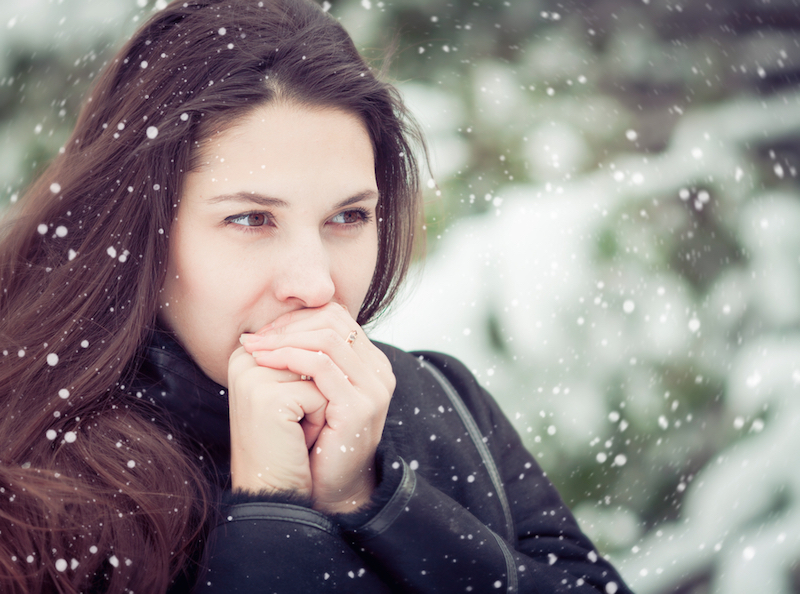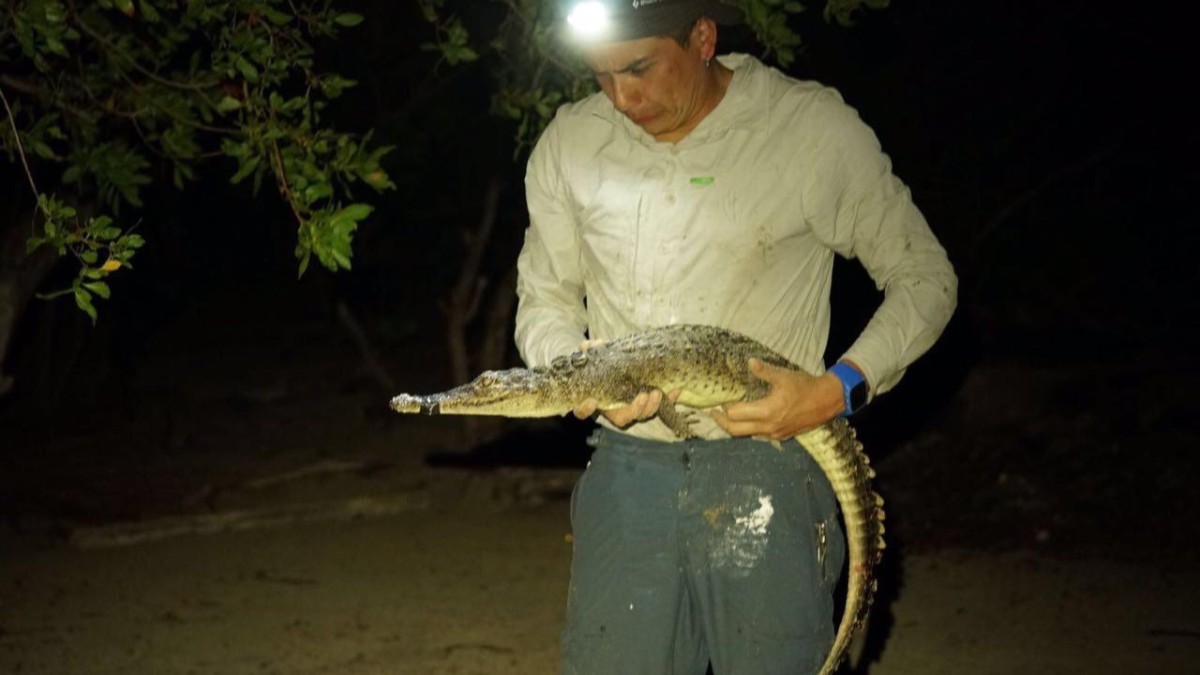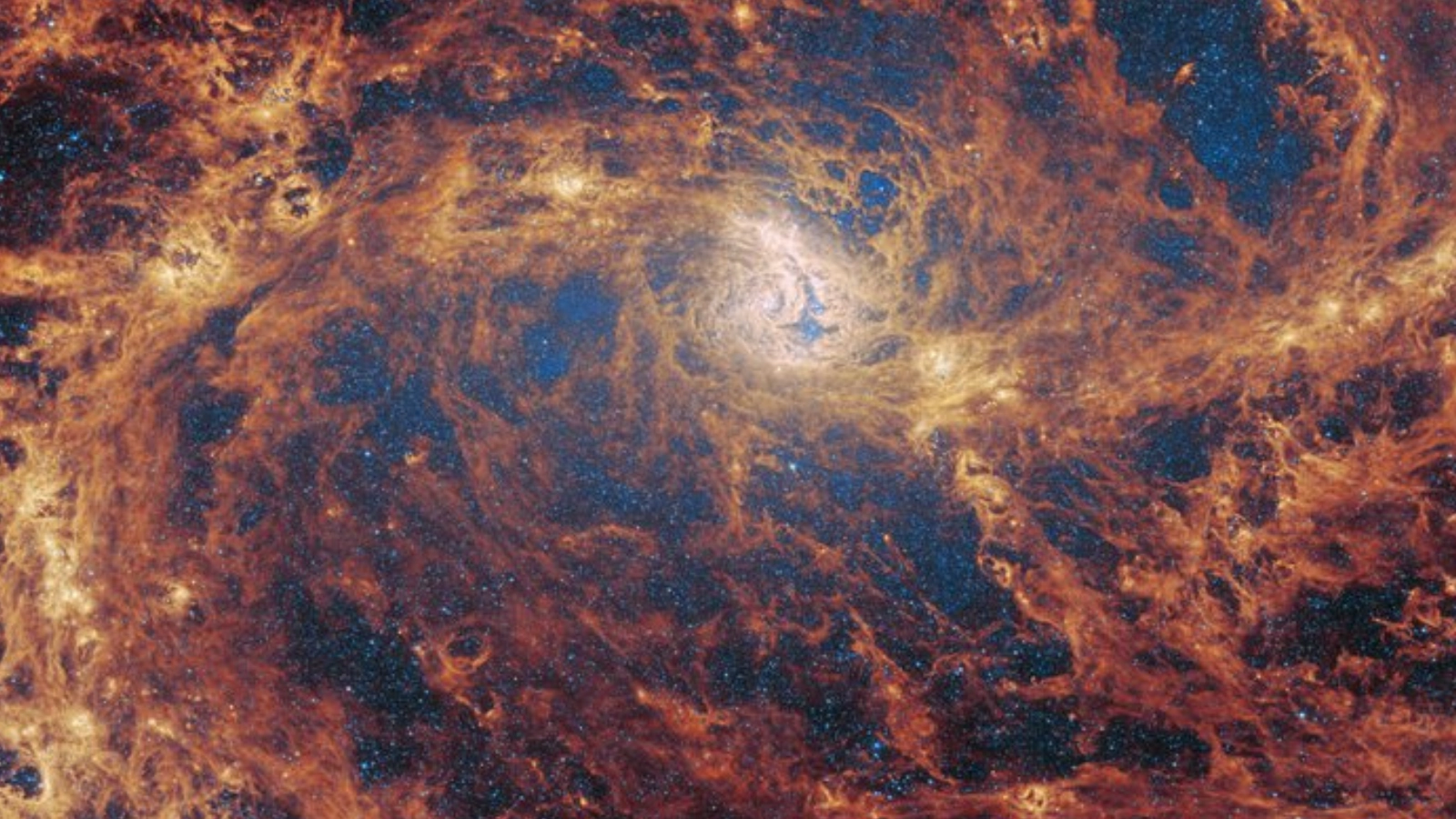5 Weird Ways Cold Weather Affects Your Psyche

Freezing temperatures and snow have turned much of the United States into an icebox. But, beyond keeping people inside and prompting them to bundle up when they venture out, does the cold weather change people's behavior?
Science says yes.
Cold temperatures can influence our thoughts and decisions without our even knowing it, experts have found. From influencing what colors women wear to how we judge criminals, from the limits of human creativity to how we treat our friends, chilly temperatures may have a great effect on the human psyche, research shows. [15 Weird Things Humans Do, and Why]
Here are five unexpected ways cold weather may influence people.
The red dress effect
Cold weather may influence what colors women wear, but only during a certain time of the month, according to research published in 2013 and 2014.
The research showed that during cold weather, "Women are more likely to wear shades of red and pink on days when they're ovulating," said Jessica Tracy, who authored the research and is an associate professor of psychology at the University of British Columbia in Canada. During ovulation, which is the release of an egg from the ovary, a woman's chances of conceiving are at their highest.
Sign up for the Live Science daily newsletter now
Get the world’s most fascinating discoveries delivered straight to your inbox.
Although it's not clear why women may do this, some researchers think it comes down to sex appeal. "The basic idea is that red and pink colors are sort of a sexual signal," Tracy told Live Science.
When the researchers tried to replicate the study in the summer, the effect vanished, Tracy said. It reappeared when they did a new study during the winter, which they published in 2014 in the journal PLOS ONE.
"Maybe what's going on here is that in the summer when it's warmer, women have more ways of dressing seductively," Tracy said. This idea that women may behave differently when they are ovulating is somewhat controversial, Tracy noted, although she said there is ample evidence to support it.
Cold-blooded murder
Room temperature can influence how people judge criminals, a recent study found.
People in cold rooms in the study were more likely to see criminals as cold-blooded offenders whose crimes were premeditated, according to the study. In contrast, people in hot rooms tended to see criminals as hotheaded and impulsive, according to the 2014 study in the journal PLOS ONE.
In the study, 133 college students in Germany looked at eight mug shots of people who had been arrested. The students wrote what crime they thought the person had committed and rated how impulsive or premeditated they thought it was. [10 Contested Death Penalty Cases]
It's not terribly surprising that people link temperature with psychological mindset, the researchers said in the study. Hot and cold temperatures affect the way people judge others all of the time. For instance, compared with when a person is holding a cup of hot coffee, a person holding a cup of iced coffee tends to see others as interpersonally colder, according to a 2008 study in the journal Science.
Romantic movies
When it's cold outside, is there a better way to stay warm than to cuddle up with a romantic movie?

It seems that when people feel physically cold, they look for psychological warmth, researchers said in a 2012 study published in the Journal of Consumer Research.
During several experiments, the researchers manipulated the temperatures of both the room that the participants were sitting in as well as that of their drink, and then asked participants to pick out a movie. People tended to choose romance movies when they were cold, the researchers found.
Interestingly, the effect did not hold for people who didn't associate romance movies with psychological warmth, Live Science reported.
The researchers also found that online movie renters chose more romance films when the weather was cold than when it was warm.
Prisoner's dilemma
Temperature may sway how much trust people put in one another, according to a study.
In an experiment called the "iterated prisoner's dilemma," participants were paired together and put in a make-believe jail. The participants were told that authorities did not have enough evidence to convict either of them, but each was asked to testify against the other, according to the 2013 study, published in the journal Evolutionary Psychology.
Participants in the study who were asked to hold a chemical hand warmer during the experiment were twice as likely to cooperate with each other (meaning, they would not testify against the other person) compared with those who held an ice pack, the researchers found.
It's possible that the sensation of physical warmth increased the students' interpersonal trust of one another, the researchers said. [Top 10 Mysteries of the Mind]
Hot and cold creativity
Different types of creativity can emerge when a person feels hot or cold, researchers found.
In a series of experiments, researchers found that people who were given a heated therapeutic pad, a hot cup of tea or who were in a warm room were better at creative drawing, categorizing objects and thinking of gift ideas for others.
But when they were cold, the participants were better at recognizing metaphors, thinking of new pasta names and planning abstract gift ideas.
It's possible that warmth helps people with warm relational creativity, meaning they may feel psychologically closer to other people and more generous toward them. In contrast, cold may stimulate referential, or distant and cold processing, as people may feel more apart from others.
"The tactile experience of physical warmth seems to be one of the most basic cues through which people learn about their social world," the researchers wrote in the 2014 study, published in the journal Acta Psychologica.
Follow Laura Geggel on Twitter @LauraGeggel. Follow Live Science @livescience, Facebook & Google+. Original article on Live Science.

Laura is the archaeology and Life's Little Mysteries editor at Live Science. She also reports on general science, including paleontology. Her work has appeared in The New York Times, Scholastic, Popular Science and Spectrum, a site on autism research. She has won multiple awards from the Society of Professional Journalists and the Washington Newspaper Publishers Association for her reporting at a weekly newspaper near Seattle. Laura holds a bachelor's degree in English literature and psychology from Washington University in St. Louis and a master's degree in science writing from NYU.









